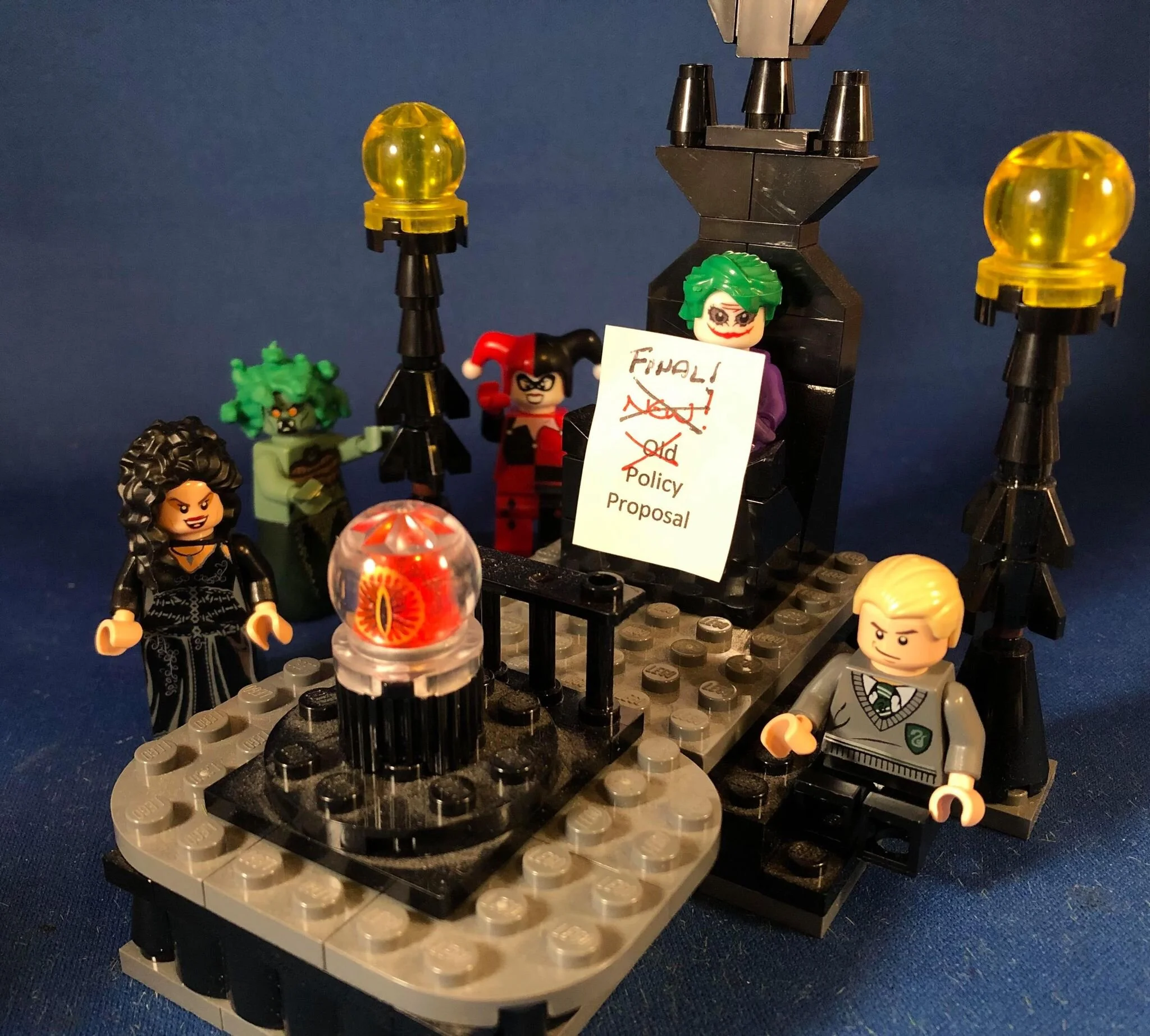Further revisions on de-designation policy before Sept 11 BoG meeting
On September 2, Athabasca University provided AUFA with a “final” version of its new Designation as Academic Policy. The changes in the policy are, generally speaking, positive and appear to be in response to AUFA’s escalation of member pressure. That said, the latest version of the policy still places two-thirds of the membership in jeopardy. But it kicks possible de-designations an unknown distance down the road.
What remains the same?
AU continues to narrowly define an academic as someone whose job duties includes teaching, research, and service (section 4.1 of the policy). This definition means academic coordinators (who do not have official research duties, although they may do research) are not academics under this policy. This definition also means that professionals are not considered academics under the policy.
AU could continue to designate professionals and academic coordinators as AUFA based on criteria in Section 42 of the policy, such as the history of collective bargaining, their functional relationship with “academics”, and the impact of de-designation upon them. The policy gives the Board of Governors authority to determine what weight (if any) these considerations will have.
Overall, the more recent draft of the policy continues to offer much less protection to academic coordinators and professionals than does the current (circa 1983) policy. Additionally, in its covering letter to AUFA AUPE and CUPE, AU notes:
“The University recognizes the relevance of history to the designation process. It is, however, clear that history is not determinative of how a position ought to be designated.”
Combined with AU’s comment about history not be determinative, this proposed policy language remains very worrisome and AUFA will need to be prepared to resist any efforts to de-designate academic coordinators and professionals.
What has changed?
AU has removed deans, managers, and exclusions under PSERA that could have affected IT staff from the list of named (i.e., automatic) exclusions from AUFA. This means these AUFA members will not be automatically excluded from AUFA if and when the policy passes. In the covering letter AU noted:
“The University has always intended to engage in fulsome consultations with the affected union partners before any decisions were made with respect to changing these designations. … Any decisions with respect to designation or exclusion would, on a go-forward basis, be based on the application of the draft policy and procedure, as they may be amended.”
This statement rings false. If AU had always intended to consult, why were they named (i.e., automatic exclusions in the prior drafts? This statement is mostly likely to hide the fact that pressure caused AU to blink.
Practically speaking, the new proposal means AU will undertake the required consultations if and when AU decides to de-designate these positions. Given that these were named exclusions in earlier drafts, AUFA expects AU will pursue these de-designations at some point.
AU has also removed references to applying certain exclusions imported from the Public Service Employee Relations Act (PSERA). Those exclusions would have had the effect of excluding most IT staff from any union. This is another positive sign. Nevertheless, like all professionals, the designation of all IT staff remains in peril under this policy.
One important outcome of these changes is that AUFA expects no AUFA members will be automatically de-designated if and when this policy is passed by the Board of Governors. De-designations would only occur after further consultation.
Analysis
These changes suggest several things. First, it is notable that these changes occurred after AUFA escalated its member-driven tactics such that AU faced a threat to its visiting student revenue and its reputation. While correlation is not causation, unions typically get employers to behave differently only when they can attach a cost to the employer’s behaviour (i.e., have a credible threat). That appears to be the case here as well.
(As an aside, that AU appears to respond to such threats has implications for collective bargaining. Specifically, if AUFA wish to make gains at the bargaining table, AUFA will likely need to have a credible strike threat and be prepared to carry out strike.)
Second, it is notable that AU has moved as little as possible to avoid the potential consequences of AUFA’s visiting student boycott threat. AUFA’s threat is, if you de-designate anyone, other FAs will stop sending AU visiting students. So, AU removed the automatic de-designations of deans, managers and IT staff from the policy to avoid this consequence for the time being. Nevertheless, the “final” policy continues to put two-thirds of AUFA’s members under threat of de-designation at some (unknown) future point. In this way, AU has just kicked this fight down the road.
Third, AUFA must consequently continue to treat this policy as a clear threat to AUFA members’ interests as well as an existential threat to the union itself. Academic coordinators, deans, and professionals continue to face the threat of being booted from their union and their pension plan. The AUFA members who would be left in the unit will have less power to resist rollbacks to their contract. And AUFA itself will not be financially viable.
In the absence of a credible assurance that AU will not proceed with de-designations, AUFA needs to continue to collect visiting student boycott pledges from other FAs. These pledges give AUFA a way to impose costs on AU and thus discourage future de-designation efforts.
AUFA and AUFA members must also continue to demonstrate to President Fassina and the Board that any de-designations will be entail significant consequences for AU. This includes being prepared to respond to piecemeal de-designations designed to break down AUFA members’ solidarity.
Action Request
AUFA has been informed that this policy will go before the Board of Governors for consideration on Friday, September 11. BoG meetings (via Teams) are normally open to the public. Early next week, you can expect further communication from AUFA about attending this meeting.
Bob Barnetson, Member
Membership Engagement Committee

